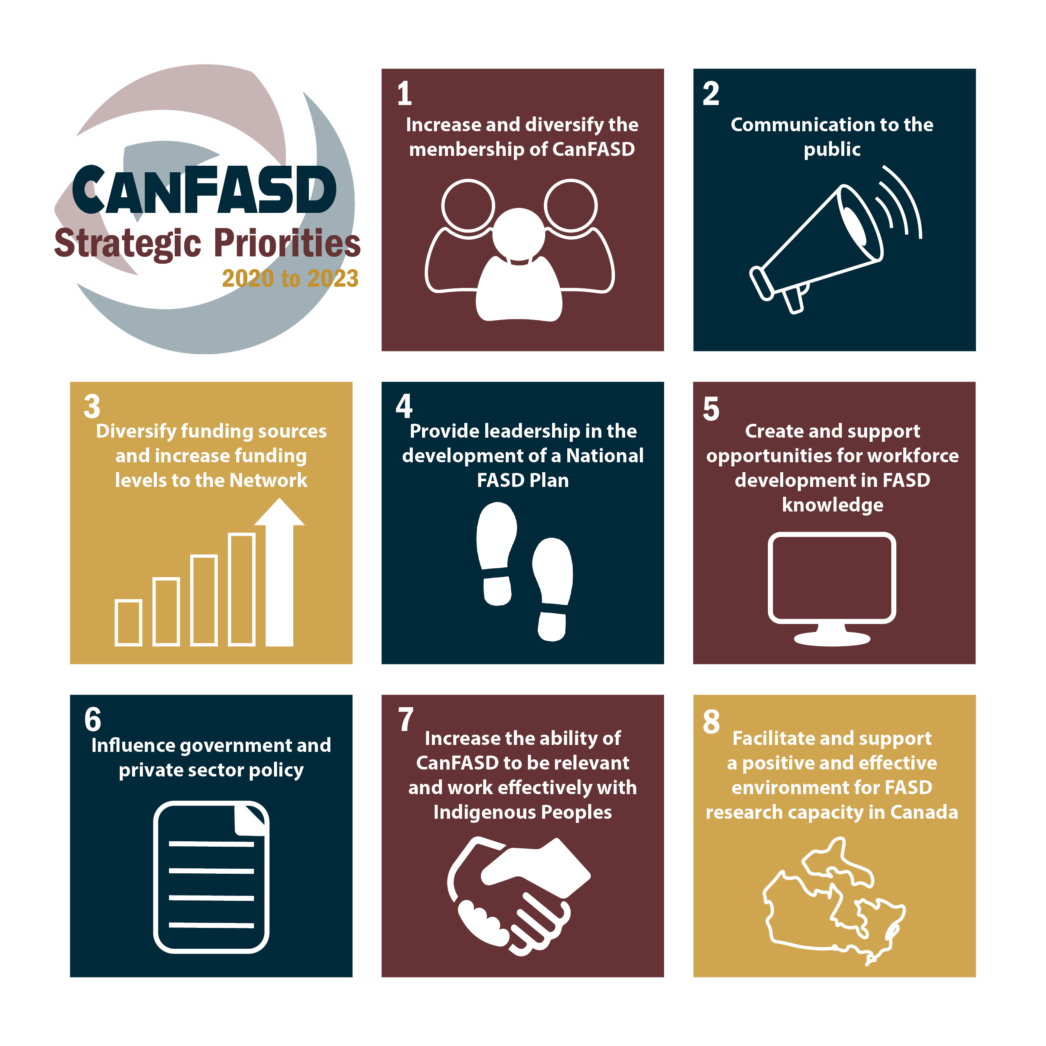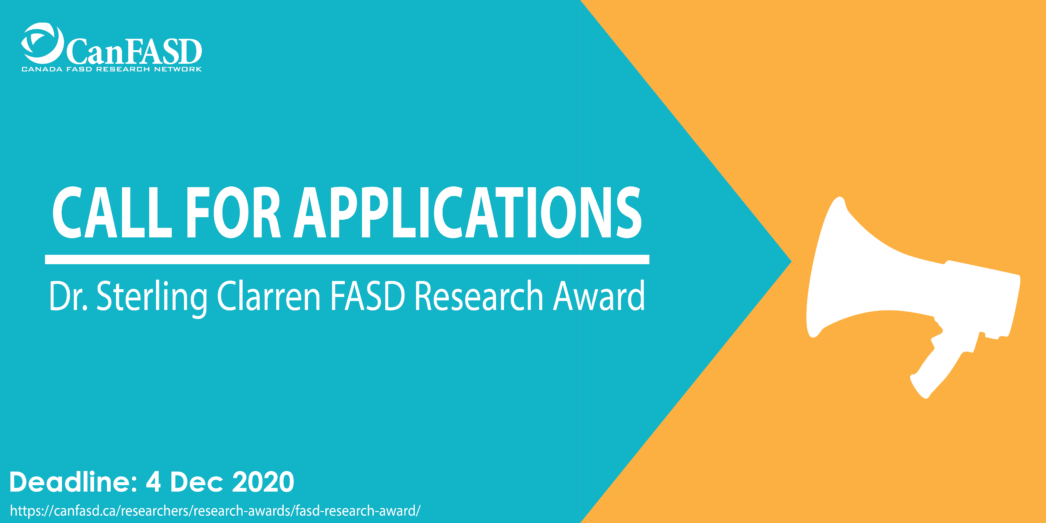Here’s a brief summary on the some of the latest research published on fetal alcohol spectrum disorder (FASD).
Strategic Priorities for 2020 to 2023
The Strategic Priorities Plan doesn’t change what we’re doing right now; it just helps us identify areas where we need to do more.
What’s New in FASD Research: September 2020
How health care providers communicate with women about alcohol use during pregnancy is very important for FASD prevention. The authors of this study evaluated 61 midwives in a southwestern U.S. state to understand how their personal alcohol use compared to their professional recommendations about alcohol consumption during pregnancy
Article Summary #4: Characterizing adverse prenatal and postnatal experiences
Prenatal alcohol exposure (PAE) is known to cause negative outcomes for individuals exposed. However, the majority of people with prenatal alcohol exposure (PAE) are also exposed to other prenatal or postnatal factors that may negatively impact their physical and mental health, including exposure to other substances, toxic stress, lack of resources, abuse, and neglect. These factors can interact with one another, leading to unexpected or cumulative negative effects on health outcomes.
Article Summary #3: Forty Years of Assessing the Effects of Prenatal Alcohol Exposure
Early life assessment of neurodevelopment and behaviour (NDB) can facilitate timely and meaningful intervention for young children at risk of negative outcomes. In the current study, researchers reviewed the literature to examine what has been learned over the last forty years about NDB difficulties in children with PAE in the first 2 years of life.
2021 Dr. Sterling Clarren Award Applications Open
The Canada FASD Research Network (CanFASD) Dr. Sterling Clarren Research Award has been named in honour of Dr. Sterling Clarren to recognize his pioneering contribution and leadership in the field of Fetal Alcohol Spectrum Disorder (FASD). The award is presented annually to a Canadian graduate student or early career researcher in recognition of a study that has made a substantial contribution to the FASD field.
What FASD is from a research perspective
This definition helps us understand what FASD is. But it can be a little complicated to understand all at once. So, let’s break this down.
Diagnosing People with FASD using Telehealth
Telehealth has been suggested as an effective means of providing FASD assessment and diagnosis to rural and remote communities. However, only three Manitoba-based studies have explored the effectiveness and experiences of FASD telehealth programs.
Prevalence of FASD in Kindergarten & Developmental Health
The authors of the current study had two primary objectives: (1) to determine the prevalence of teacher-reported diagnosis of FASD in kindergarten children; and (2) to determine the developmental health of children with FASD. A secondary objective of the study was to compare the prevalence of problems at home between children with FASD and children with other neurodevelopmental disabilities (NDD).
Article Summary #2: Relation Between Adaptive Function and IQ
Impaired adaptive function and communication abilities may prevent individuals with PAE from successfully functioning independently and may impact them academically, socially, and occupationally.






